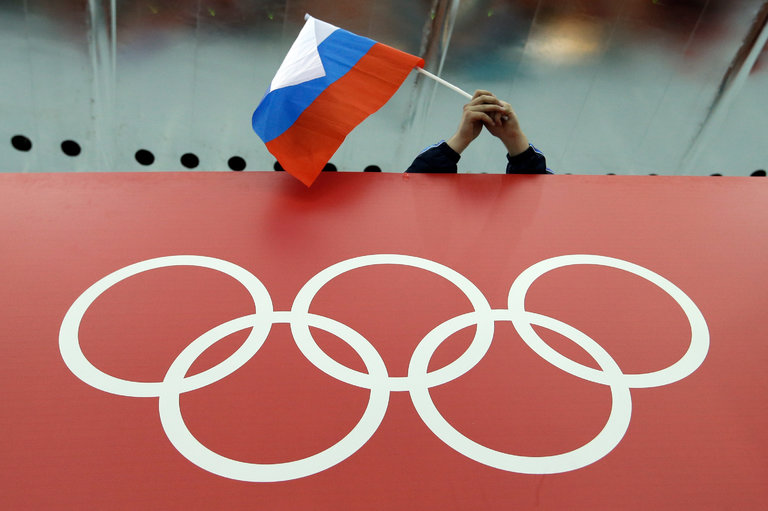
This is a column about legacy.
In July 2007 in Guatemala, Russian President Vladimir Putin charmed the International Olympic Committee (IOC) into awarding the 2014 Winter Olympic and Paralympic Games to Sochi.
Friday’s 2018 FIFA World Cup draw in the Kremlin signals that an era in which world sporting leaders have bought extensively into Putin’s grandiose national pride through sport project is nearing its end.
What does sport have to show for this decade of devotion?
To my mind, the legacy has three main components.
Host Selection: The one thing everyone thinks they know about Sochi is that it cost $51 billion.
This is grotesquely unfair. Whether or not the oft-cited figure bears any relation to reality, most of the money was spent not on the Games themselves, but on the general infrastructure necessary to transform an obscure Black Sea town into a modern, year-round resort.
Strategically, this made a fair amount of sense for Russia; and augmenting Russia’s credentials as a market for winter sports made a fair amount of sense for the sports movement.
No matter: the legacy of that fat figure has been utterly disastrous.
Combined with the financial crisis and the widespread economic slowdown which followed, that supposed $51 billion price-tag has destroyed demand for hosting the Games.
When that contest for the 2014 event got under way in 2005, the Olympic Games was more sought-after than Bitcoin. The event was the must-have accessory for any self-respecting global city.
We had just witnessed a competition for the 2012 Summer Games featuring not only a down-to-the-wire race between London, Madrid, Moscow, New York and Paris, but a first phase of evaluation in which the IOC felt able to dispense with four further bids from Havana, Istanbul, Leipzig and Rio de Janeiro.
Now, as the cliché goes, the IOC can barely give the Games away.
Such was the concern for 2028 if the two remaining candidates for the 2024 Olympics had been allowed to pummel one another into submission that it was decided to gift that 2028 event to Los Angeles uncontested.
The 2022 Winter Games contest was a lackluster affair that burst into life only on its very last day.
The IOC must now be hoping that the current economic recovery will stimulate interest in, and help moderate local opposition to, bidding for 2026.
But the damage wrought by that $51 billion number has been substantial and lingering.
Doping: A lot of us always feared that the anti-doping system remained patchy at best.
As a consequence of all that has been alleged and uncovered post-Sochi, we can be more confident than ever that we were right.
As the IOC Disciplinary Commission itself puts it in its newly-published Decision on the Alexander Legkov case: “the history of doping is full of highly controlled athletes, who never tested positive, until they finally had to admit that they had been doping over a long period of time”.
The regime of therapeutic use exemptions (TUEs), intended to permit athletes disadvantaged by medical conditions to take otherwise-banned medicines to treat them, has also been called into question.
If this leads longer-term to establishment of an anti-doping system which achieves a demonstrable reduction in the use of illicit, and potentially harmful, performance-enhancing drugs, and which catches a high proportion of cheats, some sort of positive legacy might yet be said to have come of this.
For now it seems merely to have exacerbated the mood of public cynicism that has enveloped sport, and prompted many of us to wonder whether any amount of money pumped into the system would be enough to restore the confidence of genuinely clean athletes that they are getting a fair crack of the whip.

Sports Politics: The festering problem of what to do about Russia has had a paralyzing effect, seemingly cleaving the sports movement clean down the middle in a manner that might be compared with the effect of the Brexit referendum in the UK.
Last year, while the International Paralympic Committee banned Russian athletes from the 2016 Paralympic Games in Rio, well over 250 Russians were cleared eventually to compete in the Olympics.
Sports leaders appear no closer to a consensus today – and, of course, the Pyeongchang 2018 Olympics and Paralympics are looming.
The IOC is expected next week to take a decision on Russian participation in Korea, but that will be far from the end of the affair.
Meanwhile, sport’s capacity to govern itself is once again coming under question.
I remember expressing concern about the extent of the sports sector’s exposure to Russia in a column written more than three years ago. Click here
I must admit though to having had no idea then of just how calamitous the legacy of this Russian decade of sport would turn out to be.
It seems almost futile to hope that next year’s FIFA World Cup will enable this period to draw to a close on a more positive note, but let’s hope so anyway.
By David Owen
Republished with permission from insidethegames.biz.